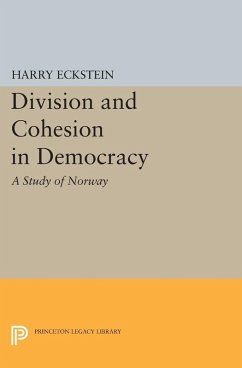To understand what conditions make democracies stable or unstable, effective or ineffective, Professor Eckstein examines the stability and effectiveness of Norwegian democracy. He finds them both to be high. He then examines several theories derived from the study of other democracies or from comparative studies of other democratic and nondemocratic societies. Virtually all present an inadequate explanation of the Norwegian case, because the political divisions in Norway are the kind usually associated with instability and ineffectiveness of democratic rule. The author explains, however, that a profound sense of community exists despite the political cleavages.
Originally published in 1966.
The Princeton Legacy Library uses the latest print-on-demand technology to again make available previously out-of-print books from the distinguished backlist of Princeton University Press. These editions preserve the original texts of these important books while presenting them in durable paperback and hardcover editions. The goal of the Princeton Legacy Library is to vastly increase access to the rich scholarly heritage found in the thousands of books published by Princeton University Press since its founding in 1905.
Originally published in 1966.
The Princeton Legacy Library uses the latest print-on-demand technology to again make available previously out-of-print books from the distinguished backlist of Princeton University Press. These editions preserve the original texts of these important books while presenting them in durable paperback and hardcover editions. The goal of the Princeton Legacy Library is to vastly increase access to the rich scholarly heritage found in the thousands of books published by Princeton University Press since its founding in 1905.









